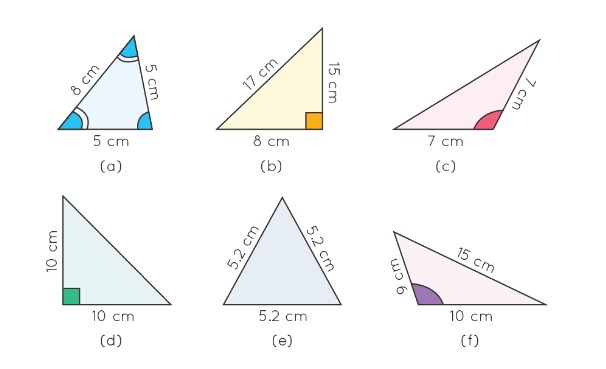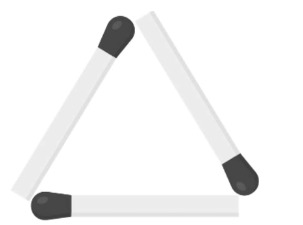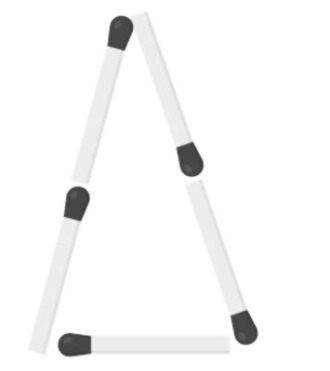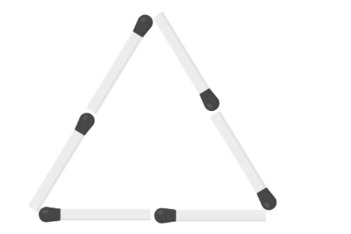Exercise 5.6
1. Name the types of following triangles:
(a) Triangle with lengths of sides 7 cm, 8 cm and 9 cm :
(b) ΔABC with AB = 8.7 cm, AC = 7 cm and BC = 6 cm :
(c) ΔPQR such that PQ = QR = PR = 5 cm :
(d) ΔDEF with m∠D = 90° :
(e) ΔXYZ with m∠Y = 90° and XY = YZ :
(f) ΔLMN with m∠L = 30°, m∠M = 70° and m∠N = 80° :
2. Match the following :
3. Name each of the following triangles in two different ways: (you may judge the nature of the angle by observation).

We will use the properties of triangles and types of triangles to solve this.
(a) Acute-angled and
(b) Right-angled and
(c) Obtuse-angled and
(d) Right-angled and
(e) Acute-angled and
(f) Obtuse-angled and
4. Try to construct triangles using match sticks. Some are shown here.Can you make a triangle with.
Hint: (Remember you have to use all the available matchsticks in each case)Name the type of triangle in each case. If you cannot make a triangle, think of reasons for it. And Answer in the form of Yes or No.
(a) 3 matchsticks?

(b) 4 matchsticks?
Using 4 matchsticks, we cannot make a triangle since the sum of the lengths of any two sides of a triangle has to be greater than the third side.
(c) 5 matchsticks?

(d) 6 matchsticks?

